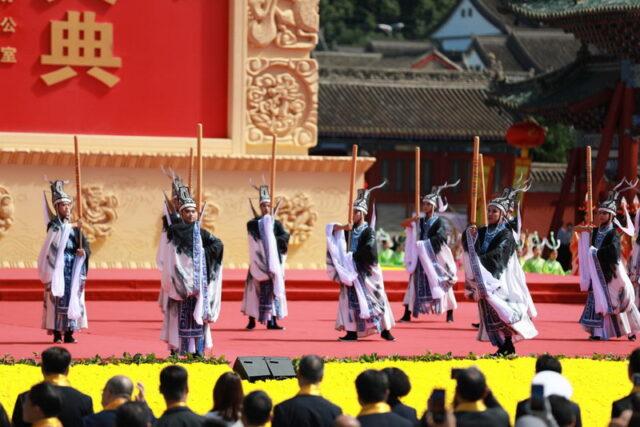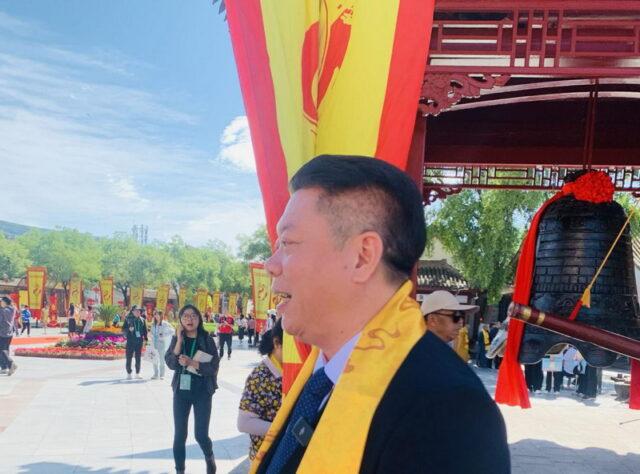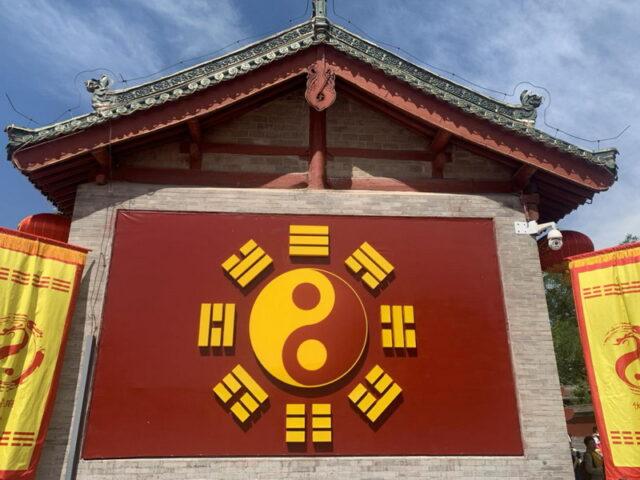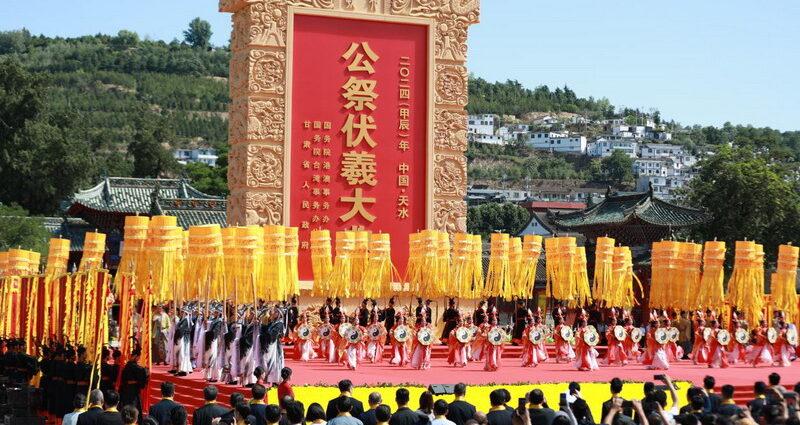The 2024 ceremony to commemorate Fuxi, a legendary ancestor of the Chinese nation, kicked off on Friday morning in the city of Tianshui, in northwest China’s Gansu Province.
Simultaneously, a similar event convened in the city of Xinbei to jointly honor the legendary figure of the Chinese nation. This was the 11th consecutive year for the Chinese mainland and Taiwan to hold the commemoration.
As a symbol of kinship between Chinese compatriots across the Taiwan Straits since 2014, the joint commemoration encourages Chinese people to inherit traditional civilization via the legendary figure.
Following the convention, the Fuxi commemoration this year is comprised of six agendas: elegant music playing first, then drum beating and bell-ringing, reading sacrificial text, bowing and performing musical dance, and ultimately presenting floral baskets and visiting the ancestral temple.

Weng Guoning, Chairman of the Confederation of Toronto Chinese Canadian Organizations (CTCCO), told GDToday reporter that he was very excited to attend the commemoration in person for the first time. On behalf of overseas Chinese, Mr. Weng presented a floral basket to the legendary ancestor. A wave of nostalgia overwhelmed him.

“All Chinese people are descendants of the dragon. The Fuxi commemoration is an important platform for Chinese people around the world to trace their roots and honor their ancestors,” he noted. In Mr. Weng’s view, whether you are overseas or anywhere else, people will be very excited about the embodiment of Chinese civilization.
He elaborated that overseas Chinese around the world can better promote cohesion and identity recognition among each other by comprehending Fuxi. He also highlighted the importance of disseminating China’s excellent traditional culture to the world.
“We overseas Chinese, regardless of age, understand our Chinese culture and the ancestors of our civilization, but we should also introduce the 8,000-year-old Chinese civilization to people in foreign countries where we live,” he added.
According to him, this will encourage overseas Chinese to truly acknowledge national confidence and cultural confidence.
Fuxi, regarded as the primogenitor of Chinese civilization, lived in an era with no moral or social order and limited methods of sustaining life.
“Men knew only their mothers, not their fathers,” as recorded in the Chinese ancient classics. Fuxi established the rituals of marriage and laid down the laws of humanity.
In order to ensure the survival and prosperity of Chinese ancestors, he taught people at that time to cook, hunt, and fish, including fishing with nets and hunting with weapons made of bone, wood, or bamboo.

Moreover, Fuxi created the Eight Trigrams. The eight symbols, namely sky, earth, thunder, wind, water, fire, mountain, and lake, represent the interplay of nature, as well as the complementary relationship within the world.
Tianshui City, Fuxi’s birthplace, has a tradition of worshiping this legendary figure. The ceremony was listed as a national intangible cultural heritage by the State Council in 2006.
Reporter: Zhang Ruijun
Editor: Steven Yuen, Will Wei, James
Source:GDToday

